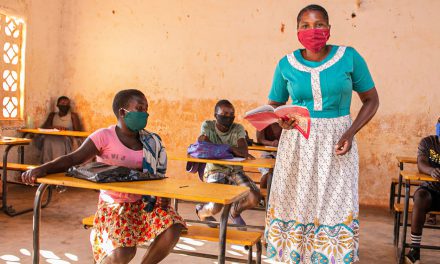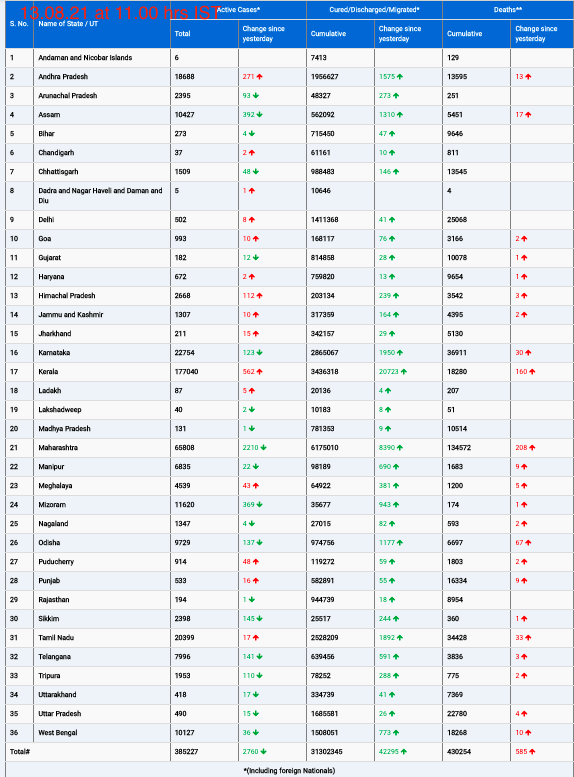
Situation at glance:
On 5 January 2023, Oman IHR-NFP notified WHO of a case of Middle East Respiratory Syndrome Coronavirus (MERS-CoV), in a 60-year-old male, from North Batinah Governorate in Oman. The case had no history of physical contact with dromedaries, goats, sheep or contact with camel products, milk, or urine. Based on the investigation conducted to identify potential exposure sources within the 14 days prior to the onset of symptoms, camel racing exercises were found to have been conducted in the area of the patient’s residence in North Batinah Governorate. A total of 76 close contacts were followed for 14 days from the date of last exposure with the case. No secondary cases have been reported to date.
Description of the case:
On 5 January 2023, the National IHR Focal point of Oman notified WHO of one case of MERS-CoV from North Batinah Governorate in Oman.
The case, a 60-year-old male, non-healthcare worker, with comorbidities, who is a resident of North Batinah Governorate, developed symptoms including chest discomfort, shortness of breath, and fever on 28 December which lasted for six days. On 2 January, he was taken to the emergency department of a secondary hospital where he was admitted to the Cardiology Unit for non-invasive ventilation. Prior to admission at the hospital, the case sought medical attention in two healthcare facilities for his symptoms. The case subsequently showed clinical and radiological improvement and was discharged on 16 January 2023.
Screening for Severe Acute Respiratory Infection (SARI) was initiated on 3 January 2023 and MERS-CoV was confirmed by real-time polymerase chain reaction (RT-PCR) testing. Investigation of the history of exposure to the known risk factors in the 14 days prior to the onset of the symptoms identified camel racing exercises conducted in the same area as the patient’s residence in North Batinah Governorate. The case, a driving instructor by occupation, had no history of physical contact with dromedaries, goats, sheep or contact with camel products, milk, or urine.
The last MERS-CoV infection was reported from Oman in May 2022. The first ever laboratory-confirmed case of MERS-CoV in Oman was reported in June 2013. Since then, including this current case, Oman has reported 26 cases of MERS-CoV including seven deaths (CFR 27%).
Epidemiology of the disease:
Middle East respiratory syndrome (MERS) is a viral respiratory infection that is caused by a coronavirus called Middle East respiratory syndrome coronavirus (MERS-CoV). Humans are infected with MERS-CoV from direct or indirect contact with dromedary camels who are the natural host and zoonotic source of the MERS-CoV infection.
MERS-CoV infections range from asymptomatic or mild respiratory symptoms to severe acute respiratory disease and death. A typical presentation of MERS-CoV disease is fever, cough and shortness of breath. Pneumonia is a common finding, but not always present. Gastrointestinal symptoms, including diarrhoea, have also been reported. The virus appears to cause more severe disease in older people, persons with weakened immune systems and those with chronic diseases such as renal disease, cancer, chronic lung disease, and diabetes. Severe illness can cause respiratory failure that requires mechanical ventilation and support in an intensive care unit and can result in high mortality.
No vaccine or specific treatment is currently available, although several MERS-CoV-specific vaccines and treatments are in development. Treatment is supportive and based on the patient’s clinical condition.
Public health response
- Exposure history of the case was collected to identify the source of exposure.
- The contacts list included 24 contacts from family members and workplace, and 51 health care workers (12 from two Health Care facilities and 39 from the hospital where he was admitted), and one patient.
- The health care workers in the hospital followed the Ministry of Health (MOH) Infection Prevention and Control guidelines for using Personal Protective Equipment (PPE).
- All identified contacts were traced, monitored and followed up for symptoms for 14 days from the last date of exposure to the MERS-CoV patient, especially high-risk contacts among healthcare workers.
- Out of 76 contacts, seven contacts developed mild respiratory symptoms (five healthcare workers and two family members), as per the MOH Infection Prevention and Control guideline for MERS-COV exposures and cases. These seven cases have been tested for MERS-CoV by RT-PCR and the results were negative.
WHO risk assessment
Middle East respiratory syndrome (MERS) is a viral respiratory infection of humans and dromedary camels which is caused by a coronavirus called Middle East respiratory syndrome coronavirus (MERS-CoV). Infection with MERS-CoV can cause severe disease resulting in high mortality. Since 2012, globally the case fatality rate (CFR) for MERS-CoV cases is approximately 36%, but this may be an overestimate of the true mortality rate, as mild cases of MERS may be missed by existing surveillance systems and until more is known about the disease, the case fatality rates are counted only amongst the laboratory-confirmed cases reported to WHO.
Humans are infected with MERS-CoV from direct or indirect contact with dromedaries who are a host and zoonotic source of MERS-CoV infection. MERS-CoV has demonstrated the ability to be transmitted between humans. So far, the observed non-sustained human-to-human transmission has occurred among close contacts and in healthcare settings. Outside of the healthcare setting there has been limited human-to-human transmission.
Cases of MERS-CoV infection are rare in Oman. Since June 2013, a total of 26 MERS-CoV cases and seven deaths, including this current case, have been reported to WHO from Oman.
The total number of laboratory-confirmed MERS-CoV infection cases reported globally to WHO is 2603 including 935 associated deaths (CFR 36%) as of December 2022. The majority of the reported cases have occurred in countries in the Arabian Peninsula. Outside of this region, there has been one large outbreak in the Republic of Korea, in May 2015, during which 186 laboratory-confirmed cases (185 in the Republic of Korea and one in China) and 38 deaths (CFR 21%) were reported. The global number reflects the total number of laboratory-confirmed cases and deaths reported to WHO under IHR (2005) to date.
The notification of this case does not change the overall risk assessment. WHO expects that additional cases of MERS-CoV infection will be reported from the Middle East and/or other countries where MERS-CoV is circulating in dromedaries, and that cases will continue to be exported to other countries by individuals who were exposed to the virus through contact with dromedaries or their products (for example, consumption of raw camel milk), or in a healthcare setting.
WHO continues to monitor the epidemiological situation and conducts risk assessments based on the latest available information.
WHO advice
Surveillance: Based on the current situation and available information, WHO re-emphasizes the importance of strong surveillance by all Member States for acute respiratory infections, including MERS-CoV, and to carefully review any unusual patterns.
Infection prevention and control in healthcare settings: Human-to-human transmission of MERS-CoV in healthcare settings has been associated with delays in recognizing the early symptoms of MERS-CoV infection, slow triage of suspected cases and delays in implementing Infection Prevention and Control (IPC) measures. IPC measures are therefore critical to prevent the possible spread of MERS-CoV between people, particularly in healthcare facilities.
Healthcare workers should always apply standard precautions consistently with all patients, at every interaction in healthcare settings:
- Droplet precautions should be added to the standard precautions when providing care to patients with symptoms of acute respiratory infection.
- Contact precautions and eye protection should be added when caring for probable or confirmed cases of MERS-CoV infection.
- Airborne precautions should be applied when performing aerosol-generating procedures or in settings where aerosol-generating procedures are conducted.
IPC strategies to prevent or limit transmission in healthcare settings include the following:
- ensuring triage, early recognition, and source control (isolating patients with suspected MERS-CoV);
- applying standard precautions for all patients;
- implementing empiric additional precautions (droplet and contact and, whenever applicable, airborne precautions) for suspected cases of MERS-CoV;
- implementing administrative controls;
- using environmental and engineering controls.
Infection prevention and control in the community: General hygiene measures, such as regular hand washing before and after touching animals and avoiding contact with sick animals, should be adhered to. Food hygiene practices should be observed. People should avoid consuming raw camel products like milk or urine or eating meat that has not been properly cooked.
MERS-CoV appears to cause more severe disease in people with underlying chronic medical conditions such as diabetes, renal failure, chronic lung disease, and immunocompromised persons. Therefore, people with these underlying medical conditions should avoid close contact with animals, particularly dromedary camels, when visiting farms, events (e.g., camel races, or camel beauty pageants), markets, or barn areas where dromedaries are present.
Case management: Early identification, case management and isolation of cases, quarantine of contacts, together with appropriate infection prevention and control measures in health care settings and public health awareness can prevent human-to-human transmission of MERS-CoV.
Timely, effective, and safe supportive management of patients with MERS should be provided, particularly for those at risk of more severe disease.
International travel and trade: WHO does not advise specific MERS-CoV screening at points of entry with regard to this event, nor does it currently recommend the application of any travel or trade restrictions.
Further information
- WHO Middle East respiratory syndrome coronavirus (MERS-CoV) fact sheet
- Middle East respiratory syndrome coronavirus (MERS-CoV) Overview
- Disease outbreak news on (MERS-CoV) – Oman 17 May 2022
- WHO MERS Global Summary and Assessment of Risk – 16 November 2022
- Middle East Respiratory Syndrome, situation update as of December 2022
- Middle East Respiratory Syndrome Outbreak Toolbox
- MERS outbreak in the Republic of Korea, 2015
- Korea Disease control and Prevention agency, Middle East Respiratory Syndrome (MERS) outbreak in 2015
- Middle East Respiratory Syndrome Coronavirus (MERS-CoV) in Oman: Current Situation and Going Forward
Citable reference: World Health Organization (8 February 2023). Disease Outbreak News; Middle East Respiratory Syndrome Coronavirus in Oman. Available at: https://www.who.int/emergencies/disease-outbreak-news/item/2023-DON436











